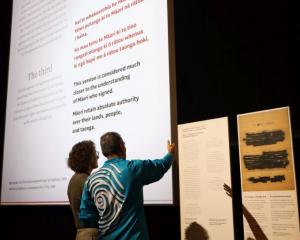
Milner, dubbed the 'Black Widow', was found guilty by a High Court jury last December of fatally poisoning her second husband Phil Nisbet by lacing his evening meal with crushed sedatives.
In February she was sentenced to life in prison with a minimum non-parole period of 17 years.
Milner, 50, appealed against her convictions for murder and earlier attempting to murder truck driver Mr Nisbet.
Court of Appeal judges rejected her argument that Mr Nisbet, 47, had committed suicide.
Now, Milner has begun the first of two stages in appealing against her conviction at the Supreme Court.
A spokesman for the Supreme Court said a hearing date for an application for leave to appeal has been allocated for February 16 next year.
If leave to appeal is granted, a hearing date for a full hearing will then be allocated.
When NZME. revealed in August that she was taking her case to the highest court in the land, defence counsel Rupert Glover said she "still maintains her innocence".
"And for that reason, she wants to appeal if there are any grounds to do so. I've looked at the situation and concluded that she may have grounds [to appeal]," he said.
Milner argued in the Court of Appeal that the jury's verdict was unreasonable because the prosecution did not prove beyond reasonable doubt that it was possible for her to have administered the drug Phenergan without her husband noticing its bitter taste.
The Court found it was not necessary for the prosecution to prove exactly how the mother of two had administered the drug so Mr Nisbet did not know about it.
The mechanics of administering the drug was simply one factor for the jury to weigh up in the context of a strong circumstantial case, they ruled.
They added that other, circumstantial evidence supported the jury's verdict.
Purchases of Phenergan under fake names were linked to Milner, and her son Adam Kearns gave evidence that he had seen her crushing pills.
She had expressed a wish to kill Mr Nisbet and take advantage of his $250,000 life insurance policy.
And suicide notes given to the police by Milner contained errors and other features that matched samples of her writing.
By Kurt Bayer of NZME. News Service











